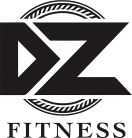When most people think of peanut butter, they picture a “healthy” spread packed with protein. Fitness ads, quick snack guides, and even diet books often list peanut butter as a go-to protein source. But here’s the truth: peanut butter is not a good protein.
Let’s break down why.
1. The Protein-to-Calorie Ratio Is Poor
Yes, peanut butter contains protein—but not much compared to the calories and fat it comes with.
- 2 tablespoons of peanut butter: ~190 calories, 16g fat, 7g protein.
That means for every gram of protein, you’re getting more than double the amount in fat. If your goal is to build muscle or simply hit your protein target, you’d need to eat a lot of peanut butter—along with a ton of extra calories and fat you might not want.
2. It’s Mostly Fat, Not Protein
Peanut butter is primarily a fat source, not a protein source. Roughly 75% of its calories come from fat, with only a small portion from protein. While healthy fats are important, calling peanut butter a “protein food” is misleading.
If you compare it to real protein-rich foods like chicken breast, Greek yogurt, fish, or whey protein, peanut butter doesn’t even come close.
3. It Lacks a Complete Amino Acid Profile
Not all proteins are created equal. Animal proteins contain all nine essential amino acids in the right balance for your body. Peanut butter, being plant-based, is incomplete—it’s low in the amino acid methionine.
That means even the protein it does provide isn’t as effective for muscle repair and growth unless combined with other protein sources.
4. It’s Easy to Overeat
Let’s be honest—peanut butter is delicious. But that makes it dangerously easy to overeat.
Two tablespoons may not sound like much, but many people scoop double or triple that without realizing it. Suddenly, you’re 600+ calories deep with only 20g of protein to show for it. Not a great tradeoff if you’re chasing protein goals.
5. Better Alternatives Exist
If you’re looking for high-quality, efficient protein, peanut butter just isn’t it. Here are better options:
- Chicken, turkey, lean beef, fish – High protein, lower calorie per gram.
- Eggs & egg whites – Nutrient-rich, complete protein.
- Greek yogurt or cottage cheese – Great balance of protein and low fat.
- Protein powder – Convenient, concentrated, complete protein.
Bottom Line
Peanut butter can absolutely be part of a healthy diet. It’s tasty, filling, and a good source of healthy fats. But let’s be clear—it’s a fat food with a little protein, not a protein food.
So next time someone tells you to load up on peanut butter for protein, remember: enjoy it for what it is, but don’t mistake it for a muscle-building powerhouse.
1042 E Schaumburg Rd, Streamwood, IL 60107

